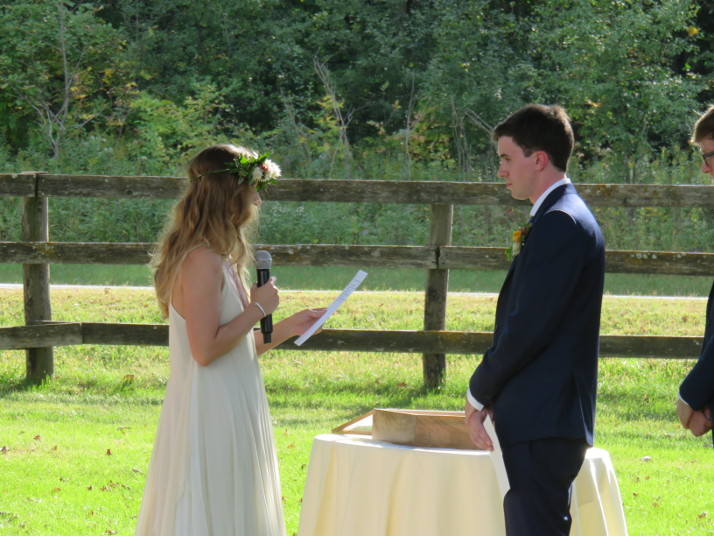Three Tips Can Make Your Ceremony Memorable
Three tips can make your ceremony memorable for the rest of your life. Without focus on your part the ceremony can become a blur instead of the most significant part of your wedding day. These three tips will help you get the most from your ceremony and help launch the rest of your wedding celebration.
Tip 1: Let the stress go. Don’t think about things that have or might go wrong with your celebration. Don’t worry about the dinner and dance yet to come, or wonder whether the reception space is ready to go. Before you walk down the aisle, take a few deep breaths to center yourself so you can be in the moment.
Tip 2: Savor the moment. Now that you’re experiencing your walk up the aisle and your ceremony, see your guests who have gathered. Hear your celebrant as she shares your story and celebrates all that marriage can be. Feel the love surrounding you from your partner, your wedding party, your family and friends. Touch your partner’s hands and know they are with you every step of the way.
Tip 3: Lead with your heart. As you say your vows, really focus on the love you feel for your partner and the promises you are making to them. And as you receive your partner’s vows listen closely and maintain eye contact with them. These moments are setting the stage for your future together and you want to remember them clearly.
Remembering these three tips can make your ceremony memorable by bringing it into focus. You’ll have mental snapshots of faces, words, promises, rituals, and of course, your first kiss as a married couple. These memories will carry you through the rest of your wedding day and for years to come as you reflect clearly on the moments that marked this happy, loving milestone moment in your life.

